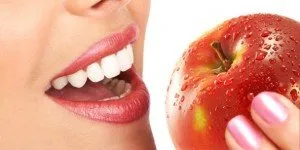Your body is a complex machine. The foods you choose and how often you eat them can impact your general as well as your oral health. If you consume too many sugar-filled sodas, sweetened fruit drinks or non-nutritious snacks, you could be at risk for tooth decay. Tooth decay is the single most common chronic childhood disease, but the good news is that it is entirely preventable.
Foods that contain sugars of any kind can contribute to tooth decay. To control the amount of sugar you eat, read the nutrition facts and ingredient labels on foods and beverages and choose options that are lowest in sugar. Common sources of sugar in the diet include soft drinks, candy, cookies and pastries. Your physician or a registered dietitian can also provide suggestions for eating a nutritious diet. If your diet lacks certain nutrients, it may be more difficult for tissues in your mouth to resist infection. This may contribute to gum disease. Severe gum disease is a major cause of tooth loss in adults. Many researchers believe that the disease progresses faster and is potentially more severe in people with poor nutrition.
For good oral hygiene, keep these tips in mind when choosing your meals and snacks:
-
Drink plenty of water
-
Eat a variety of foods from each of the five major food groups including whole grains, fruits, vegetables, lean sources of protein (e.g. lean beef, fish, dry beans, peas), low-fat and fat-free dairy products
Avoiding following types of foods is a way to maintain good oral hygiene:
-
Carbohydrates – Refined carbohydrate-laden foods (chips, bread, pasta, crackers, etc.) can be as harsh on your teeth as candy.
-
Chewy, sticky foods such as raisins, jellybeans, caramel, honey etc.
-
Sugary snacks
-
Candy and gum
-
Carbonated soft drinks
-
Fruit and vegetable juices
-
Sports drinks
Limit the number of snacks you eat. If you do snack, choose something that is healthy like fruit or vegetables or a piece of cheese. Foods that are eaten as part of a meal cause less harm to teeth than eating lots of snacks throughout the day, because more saliva is released during a meal. Saliva helps wash foods from the mouth and lessens the effects of acids, which can harm teeth and cause cavities.
Remember to visit your dentist regularly for check-ups and cleanings – typically twice a year.
For good dental health, always remember to brush at least twice a day with fluoride toothpaste, floss daily and visit your dentist regularly. With regular dental care, your dentist can help prevent oral problems from occurring in the first place and catch those that do occur in the early stages, while they are easy to treat.

